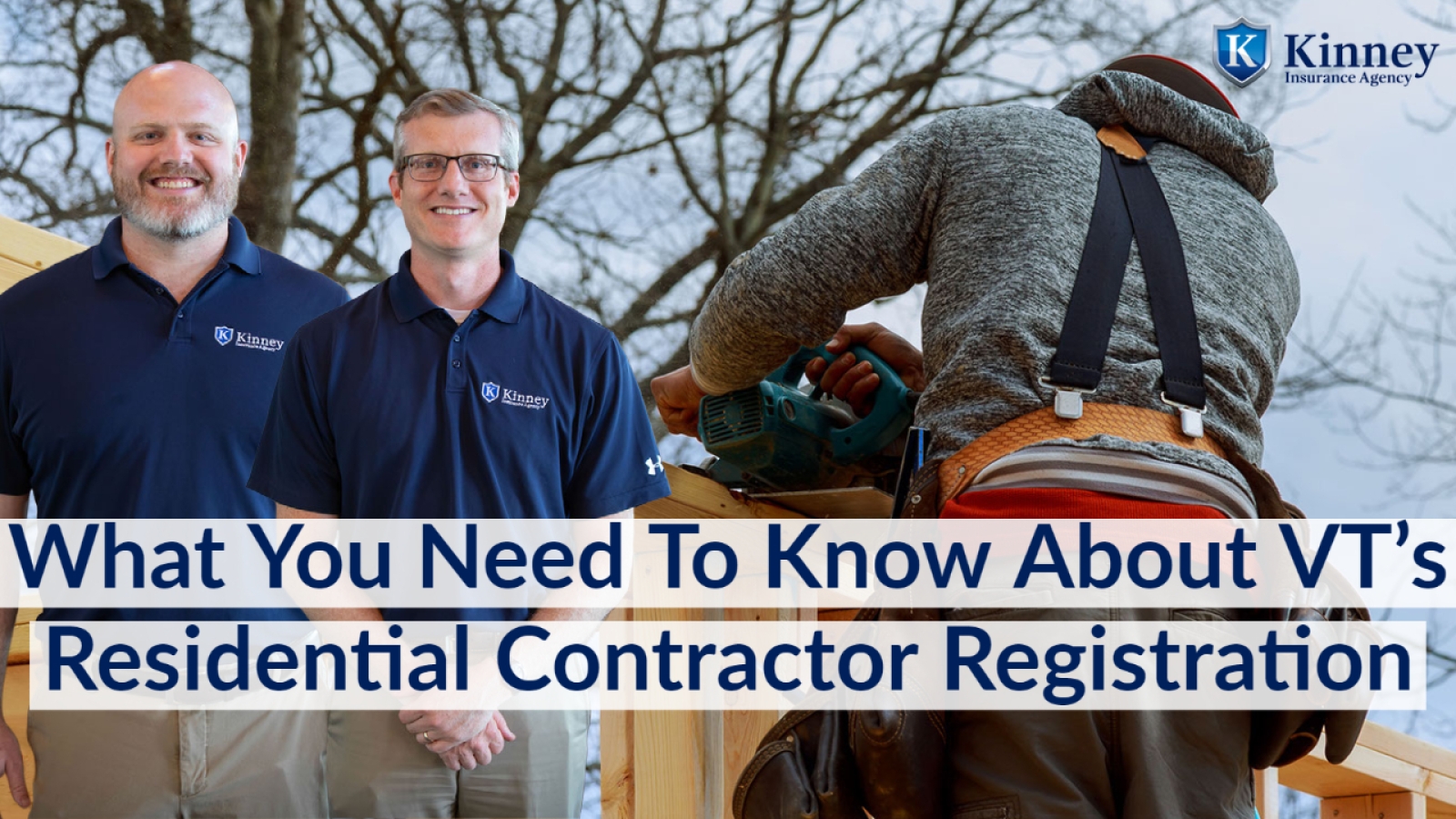What You Need To Know About VT's Residential Contractor Registration
What is Vermont’s new Residential Contractor Registry? We break it all down here!
In this blog post, we will explore the details of this new law and what it means for contractors in Vermont, and of course, we will touch on the insurance requirements. (Spoiler alert: you must have insurance to register)
If you are a contractor who performs residential construction in Vermont, you may have heard about the new law the Vermont Legislature passed that now requires all residential contractors to register with the state if they perform construction where the estimated value is $10,000 or more, including labor and materials.
Registration is mandatory for all qualifying contractors and needs to be completed by 4/1/2023, so if you are just learning about this new requirement, you still have time, and we can catch you up to speed!
The new law specifically targets contractors who work in residential construction. By definition, this includes any work related to building, demolishing, or altering a residential dwelling unit, as well as buildings or premises with four or fewer residential dwelling units.
The scope of this law is wide, as it covers various types of residential work, including:
- Interior and exterior construction renovation and repair
- Painting
- Paving
- Roofing
- Weatherization
- Installation or repair of heating, plumbing, solar, electrical, water, or wastewater systems.
If you plan to do residential work that fits in these categories that is greater than $10,000, then you need to register.
It is important to clarify that this new law creates a registry, not licensure. This means that the state is simply requiring contractors to register with them and provide information about their business rather than imposing any additional licensing or certification requirements.
Additionally, any tradesperson who is already licensed, registered, or certified by the Department of Public Safety, and is working within the scope of their license, registration, or certification, is not required to register.
For a detailed list of people NOT required to register, check out this link: https://sos.vermont.gov/residential-contractors/residential-contractor-faqs/#q7
Now that we have covered the basics of the new law let's dive deeper into the requirements for registration. Here are the key requirements that contractors must meet in order to register with the state:
- Submit an online application with the Office of Profession Regulation: The state has made the registration process fairly straightforward, with online registration available through the Vermont Department of Labor's website here: https://sos.vermont.gov/residential-contractors/forms-instructions/
- Non-refundable application fee: There is a fee for registering with the state, which must be paid at the time of application. The fee is non-refundable, even if the application is denied. The list of fee’s can be found here: https://sos.vermont.gov/residential-contractors/residential-contractor-faqs/#q10
- Minimum liability insurance coverage: Contractors must have a minimum of $1,000,000 in liability insurance coverage per occurrence and $2,000,000 in aggregate coverage. This is where we come in. If you are a current client, you more than likely already meet this requirement. If you aren’t, feel free to reach out, and we can set you up.
- Attest to use of a written contract: Contractors must attest that they use a written contract prior to receiving a deposit or commencing residential construction work if the estimated value of the labor and materials exceeds $10,000. This is an important requirement that helps to ensure that both the contractor and the homeowner understand the scope of work, the cost, and the timeline for completion. Keys to a contract can be found here: https://sos.vermont.gov/residential-contractors/residential-contractor-faqs/#q12
In addition to meeting these basic requirements, you will also need to know what type of registration you should select. Individual or Business
- Individual Registrations are for residential contractors who are self-employed and do not have any employees.
- Business Registrations are for contractors who have employees working for them. (Employees of a contractor under this registration are not required to register)
That’s it! When you feel comfortable with the requirements and the types of registration, give it a go!
Overall, the mandatory registration of residential contractors in Vermont is intended to improve consumer protection, ensure the quality of residential construction work, and promote transparency in the industry. Something we can all agree should benefit quality contractors in the long run.
Hopefully, by complying with the registration requirements and contract provisions, contractors will further demonstrate their commitment to their craft and earn even more trust from their clients and prospective clients.
We hope this helps, and if you have any questions about the insurance requirements, don’t hesitate to reach out!

